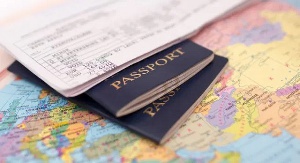A recent survey conducted by CS Global Partners, a legal advisory firm headquartered in London, has revealed that the vast majority of passport holders across Africa do not feel their passport is powerful when it comes to travel options.
Close to half those surveyed indicated they want increased mobility in order to stay competitive in business on a global scale.
The survey, conducted in December 2020, looked at passport holders across African countries including Ghana, Nigeria, Kenya and Zambia to gain a better understanding of whether Africans felt the need for dual citizenship as a means to gain global access.
CS Global Partners advises and assists those in Africa, and across the globe, on how to diversify their options. By applying for dual citizenship through Citizenship by Investment programmes, Africans are opening new doors for both travel and business opportunities.
“The trend we have been seeing amongst those living in Africa is one of increased uptake in investing in dual citizenship. Africans want to be more mobile for business, travel and in many cases to have another option for somewhere safe to settle with their families. During this time of the pandemic, where travel is limited and uncertain, not having the right passport can curtail your ability to travel when needed,” says Micha Emmett, CEO of CS Global Partners.
According to the survey, most respondents felt their passports severely limited their global travel and business options allowing for hardly any visa-free access to other countries.
In addition to business mobility, another driving factor to gaining dual citizenship was the desire to provide a more peaceful life for their families as well as economic stability.
“The need for dual citizenship has never been greater. Unstable governments, increasing and uncertain limitations due to the pandemic all contribute to needing to diversify, to have a Plan B. Citizenship by Investment programmes allow you to do that. You don’t need ancestral connections, you can simply invest in an established programme, follow due process and within the space of 60-90 days find yourself a dual citizen of a country in the Caribbean,” says Paul Singh, Director at CS Global Partners.
54% of those surveyed said that they would like second citizenship in the Caribbean. Besides the close proximity to the US, it also allows for visa-free travel to between 140 – 160 countries across the world.
Citizenship by Investment has been around for decades as an effective way to gain a second citizenship. The programmes for Dominica and St. Kitts & Nevis specifically have long been hailed as some of the most established. Offering excellent education systems, they are often a popular choice amongst families. With strict due diligence in place, the economic difference that can be seen in these countries, as a result of these investments, ensures citizens and investors alike benefit from the programmes.
Africans want a more powerful passport, they want options. For business, for their families, for their future. Dual citizenship is an option that is open to them and one that, through Citizenship by Investment programmes, is becoming increasingly popular.
General News of Monday, 11 January 2021
Source: Jane Gordon, Contributor













